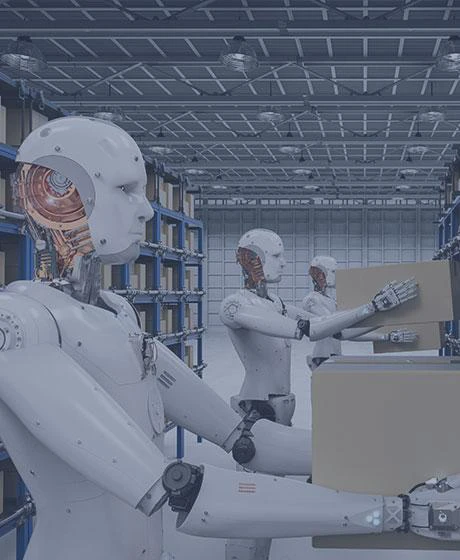Transforming logistics with artificial intelligence
28 july 2023

Contents
Precise route planning and customer service improvements
AI has found its way into transportation, helping to plan and optimize routes. By using historical data and analyzing weather conditions, artificial intelligence accurately estimates the predicted arrival time of vehicles. In addition, chatbots and virtual assistants are increasingly being used for customer service, tracking shipments and providing real-time information, greatly improving customer service departments.
Efficient warehouse management through artificial intelligence
Artificial intelligence is bringing significant improvements to warehouse management, enabling more efficient order processing, inventory control and returns handling. It is worth noting that advanced warehouse image analysis systems are also being developed to detect any damage.
Not only at the operational level, but also at the strategic level, artificial intelligence plays an important role. It supports data analysis and business decision-making, although the final decision always belongs to the team. The technology creates summaries, studies and external materials that help make sound decisions.
Opportunity for better logistics
The future of logistics seems promising with artificial intelligence. While it may be costly to implement, logistics companies increasingly see it as an investment that contributes to business efficiency and competitiveness.
AI is playing an important role in the implementation of sustainable solutions through accurate carbon footprint calculations in the supply chain. Its analytical capabilities will further improve business efficiency and support drivers through in-vehicle AI and autonomous vehicles, resulting in safer roads.
Support for employees to unleash creativity and avoid monotonous tasks
Artificial intelligence is seen as a tool that relieves employees of monotonous tasks, giving them a chance to use their creativity in more valuable tasks. The implementation of AI is not aimed at reducing human resources, but is a support for people in their daily work.


